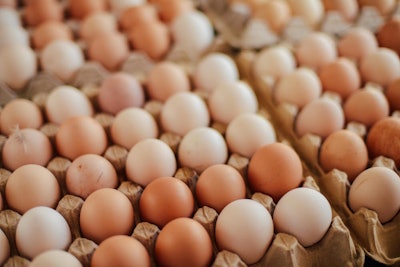
Although it could be between 10 and 20 years before they are an option, new research suggests that genetically modified eggs may contain proteins that could help fight some cancers and arthritis.
Some diseases are caused when a human’s body is unable to naturally produce enough of a certain chemical and/or protein. These illnesses can be treated or controlled with pharmaceuticals that contain the lacking protein or chemical. However, they’re often expensive.
Dr. Lissa Herron, of Roslin Technologies in Edinburgh, Scotland, said in a BBC report that her and her colleagues “can reduce the cost by, inserting a human gene - which normally produces the protein in humans - into the part of the chickens' DNA involved with producing the white in the chickens' eggs.”
Herron emphasized in the article that these birds used for testing are treated to the highest of standards.
The protein itself
Herron explained in the article that the part of the egg that would be most valuable is the whites. Specifically they’re looking at “two proteins that are essential to the immune system: one is IFNalpha2a, which has powerful antiviral and anti-cancer effects, and the other is macrophage-CSF, which is being developed as a therapy that stimulates damaged tissues to repair themselves.”
Cheaper cost
BBC reported that the drugs would be 100 times cheaper to produce when laid by hens than what they are when manufactured in factories. “Production from chickens can cost anywhere from 10 to 100 times less than the factories. So, hopefully we'll be looking at least 10 times lower overall manufacturing cost," said Herron.
The reason for lower cost is simply related to lower production cost for birds versus other livestock. Three eggs is enough to produce the drugs.
While prior research has shown that genetically modified livestock such as goats, rabbits and chickens can produce protein therapies in milk and eggs, the new research done is said to be more efficient, produce better yields and cost less than previous findings.
Reality
While the cost-effective method sounds great, it will take years to meet regulatory standards in human use. The report explained that scientists are hopeful to use the protein options in animal sooner than later as an alternative to antibiotics.
This is not the first report of egg with such potential. In October of 2017, CNN reported that researchers in Japan were working on a similar process.
The Japanese researchers had successfully genetically modified hens to produce eggs containing large amounts of interferon beta protein, a protein used to treat various illnesses, including multiple sclerosis and cancer.















